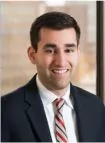The United States Department of Labor (DOL) has issued revised regulations regarding paid sick leave and expanded family and medical leave provisions under the Families First Coronavirus Response Act (FFCRA). The new rules follow Southern District of New York Judge J. Paul Oetken's August 3, 2020, decision (State of New York v. U.S. Dep't of Labor, et al. No. 20-CV-3020 (JPO), 2020 WL 4462260 (S.D.N.Y. Aug. 3, 2020)) invalidating portions of the DOL's initial Final Rules, promulgated on April 1, 2020.
As described in more detail in our prior insight, after finding that the agency exceeded its authority under the Administrative Procedure Act (APA), Judge Oetken invalidated the following four provisions of the DOL's April 1, 2020, Final Rules: (1) the documentation and notice requirements for employees taking FFCRA leave, (2) the employer approval requirement for employees taking intermittent FFCRA leave, (3) the work availability requirement for employees taking FFCRA leave and (4) the DOL's definition of "health care provider."
The DOL's new rules, which take immediate effect upon publication in the Federal Register, seek to clarify and address the issues identified by Judge Oetken, while largely reaffirming the DOL's initial Final Rules.
Documentation Requirement
The DOL's new rules clarify and correct its rules regarding documentation requirements for leave under the FFCRA. Specifically, consistent with Judge Oetken's decision, the DOL clarified that employees do not need to provide required documentation prior to taking paid sick leave or expanded family and medical leave, but rather provide supporting documentation "as soon as practicable."
The new rule also corrects an inconsistency regarding the timing of notice for leave under the FFCRA. With respect to paid sick leave, advance notice is not required and notice may be required only after the first workday for which an employee takes paid sick leave. With respect to expanded family and medical leave, advance notice may be required where the need for leave is foreseeable. Otherwise, notice of expanded family and medical leave must be provided as soon as practicable.
Intermittent Leave
The DOL reaffirms its position that employer approval is needed to take intermittent FFCRA leave in all situations where intermittent leave is permitted. To address Judge Oetken's decision invalidating the initial rule for failing to adequately explain its rationale, the DOL provides a more detailed justification for its position, which supplements its earlier explanation, arguing that the rule is consistent with long-standing principles under the Family and Medical Leave Act (FMLA) governing intermittent leave.
The DOL reiterated its prior stance that intermittent leave is likely appropriate only in circumstances where the qualifying reasons for leave do not exacerbate the risk of COVID-19 contagion such as intermittent leave from telework or intermittent leave to care for a child due to a lack of available child care. The DOL reasons that because employer approval is already a precondition under the FFCRA for telework, it is appropriate to require employer permission for intermittent leave from telework as well.
With respect to intermittent leave for child care as a result of school or child care closures, the DOL notes that employer permission is a condition that already applies for analogous FMLA leave to care for a newborn or adopted child, and is therefore consistent and appropriate under the FFCRA.
Work Availability Requirement
Judge Oetken's decision invalidated the DOL's initial rule, which precluded workers from qualifying for FFCRA benefits if their employer had no work for them to perform, finding that the DOL failed to justify its reasoning for the rule, and that there was no reason to apply this rule to only some of the qualifying reasons for FFCRA leave, as the regulations seemed to provide. In response, the DOL revised its regulations to apply the work availability requirement explicitly to all of the qualifying reasons for FFCRA leave, and reaffirmed its initial stance that "paid sick leave and expanded family and medical leave may be taken only if the employee has work from which to take leave...." The new rules provide further clarification and reasoning to address the arguments raised by Judge Oetken, and state that this reasoning is meant to supplement its prior explanation in the initial April 1, 2020, Final Rules.
Health Care Provider
The FFCRA allows employers to exclude employees who are "health care providers" from eligibility in order to prevent disruptions to the health care system's capacity to respond to the COVID-19 public health emergency. The DOL's new rules revise the definition of a "health care provider" to address Judge Oetken's ruling that its initial definition was too broad, improperly focused on the identity of the employer rather than the duties and capabilities of the employee, and potentially cut off too many workers from using leave.
The new rules define "health care providers" as employees who are "capable of providing health care services," i.e., "employees who are employed to provide diagnostic services, preventive services, or treatment services." This expanded definition shifts the focus of the inquiry to the capabilities of the employee, consistent with Judge Oetken's decision. The DOL notes that it is not enough that an employee works for an entity that provides health care services; rather, the employees must be capable of providing and be employed to provide health care services.
To further clarify and limit the definition of "health care providers" the new DOL rules identify specific types of employees who are and who are not included within the definition. The DOL rule also retains a non-exhaustive list of facilities where health care providers may work, but, consistent with Judge Oetken's decision, the revised regulations note that not all employees who work at such identified facilities fall within the definition of "health care providers."
Takeaways
The new rules largely reaffirm and clarify the DOL's April 1, 2020, Final Rules with further explanation and rationale to address the issues raised by Judge Oetken. With respect to the four provisions at issue, employers should take note of the following:
- Employees are not required to provide documentation prior to taking FFCRA leave, but may provide documentation as soon as practicable
- Advance notice of paid sick leave cannot be required, but advance notice of family and medical leave may be required if such leave is foreseeable
- Employees are not entitled to FFCRA leave when there is no available work from which employees can take leave
- Where intermittent FFCRA leave is permitted, employer approval is required.
To assess whether an employee is a "health care provider" and subject to optional exclusion from FFCRA leave, employers must look to the capabilities of the employee, including whether he or she is capable of and employed to provide diagnostic services, preventive services or treatment services. Employers should consult the new regulations for specific examples of employees who do or do not qualify as "health care providers."
The new rules will be in effect from the date of publication in the Federal Register through December 31, 2020. The rules are silent as to whether they will have retroactive effect. It is unclear whether the changes and additional explanations, clarifications and rationale for the rules will be sufficient to survive another legal challenge, or, given the expiration date, whether the new rules will be invalidated by a legal challenge before they expire of their own accord on December 31, 2020.
Going forward, employers should keep a close eye on any further developments in this area.
The content of this article is intended to provide a general guide to the subject matter. Specialist advice should be sought about your specific circumstances.

